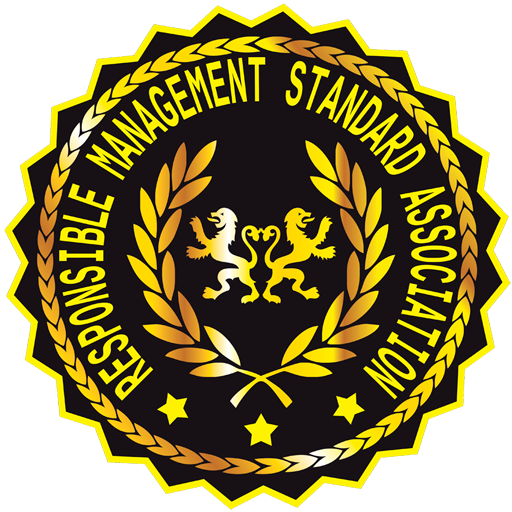Our Service / ESG Management Standard / CR8001 ESG Management Standard
CR8001 ESG Management Standard
CR8001 ESG Management Standard® specifies requirements to be met by a responsible management system in order to integrate the various partial management systems (ISO 9001, ISO 14001, OHSAS 18001, SA 8000 etc) for the achievement of its ESG mandate, mission, strategy and goals. It addresses the development and implementation of the ESG policy and objectives and gives information and knowledge on measuring, monitoring, auditing and reporting the ESG performance.
Organizations can use the CR8001 ESG Management Standard® to:
a) Examine their current policies and practices of responsible management;
b) Determine what needs to be changed;
c) Decide how the responsible management system can be developed based on the standard;
d) Use the standard for internal audit to enhance the organization’s ESG performance;
e) Develop the ESG reporting system to meet the mandatory requirements.
Business sustainability seeks to create long-term stakeholder value by embracing the opportunities and managing the risks that result from an organisation’s product, environmental, social and governance responsibilities.
Business sustainability is based on an organisation’s principles of business ethics and good governance which are materialised in its policies, codes, legal compliance and management systems. Responsible management caters for the strategic integration of sustainability, ethics and corporate responsibility.
The UN Global Compact is a voluntary initiative based on CEO’s commitment to implement the ten principles of responsible management in the areas of human rights, labour, environment and anti-corruption. With more than 8,000 signatories and stakeholders in more than 135 countries, it becomes the world’s largest voluntary corporate responsibility initiative.
Signatories to the UN Global Compact are required to report each year on the progress they have made in implementing the principles of responsible management. However, companies need an effective responsible management system to align with these principles to develop and refine the objectives, strategies, policies and the sustainability reporting.
Global Reporting Initiative (GRI) provides a guideline for the sustainability reporting, based on the UN Global Compact and OECD Guidelines for Multinational Corporations.
However, there is a missing link between the principles of responsible management and sustainability reporting. Organizations need a management system to align with the principles of responsible management to achieve the intended outcomes and reporting requirements.
ESG stands for environmental, social and governance issues, which is a more specific terminology for sustainability, ethnics and legal compliance. Driven by the regulators, governments and stock exchanges around the world, ESG reporting has been made from a voluntary basis to “comply or explain” mechanism.
Many companies have used the normative standards to implement the partial management systems exclusively, such as quality management system (ISO 9001), environmental management system (ISO 14001), occupational health and safety system (OHSAS 18001) or social accountability system (SA 8000). However, these normative standards have the following drawbacks:
a) They are used to develop the partial management systems, without integrating processes and criteria;
b) They have different sets of management principles, which cause confusion in the values, policies and norms;
c) They have no standards requirements for ESG reporting.
CR8001 ESG Management Standard® has been developed to help companies develop, implement and maintain the responsible management system to integrate the various partial management systems, principles, processes and metrics for ESG reporting.
The ESG reporting process is the integration of sustainability, corporate social responsibility (CSR) and governance reporting based on the ESG criteria, key performance indicators, performance results and improvement suggestions.
The Global Reporting Initiative (GRI) provides the guidelines and framework for sustainability reporting. However, ESG reporting is merely the framework for ESG performance outcomes and results. Without the ESG Management Standard in place, the ESG reporting become groundless.
The ISO 26000 guidance standard emphasizes the value of public reporting on social responsibility performance to internal and external stakeholders. However, the ISO 26000 guidance standard does not provide any reporting framework to align with the responsible management system, as ISO 26000 does not provide the specific requirements for developing the responsible management system.
The CR8001 ESG Management Standard® provides the framework for a responsible management system and ESG reporting. In order to be effective, an organization should at appropriate intervals report its ESG performance, including the known and likely impact on stakeholders and the environment on a regular basis.
The ESG reporting process is as follows:
- Determine the relevant and material ESG issues in the reporting system;
- Develop stakeholder engagement, investment and communication in the reporting process;
- Specific the core subjects, performance indicators and measures in the reporting system;
- Decide the intervals and time frame for the reporting process;
- Measure the ESG performance against the goals and objectives;
- Identify the ESG performance gaps, success and short comings and report other contextual information;
- Use the knowledge base system to capture, maintain and update the ESG information to ensure the quality of reported information.
The scope of CR 8001 includes the following:
- Assist organizations to implement the principles of UN Global Compact
- Provide practical guidance to make the Principle of Responsible Management operational
- Assist with stakeholders engagement, involvement and communication
- Enhance credibility of ESG reporting and claims made regarding sustainability and social responsibility
- Emphasize principles, programs and systems for performance results and improvement
- Promoting common terminology in the ESG field
The implementation of ESG management follows the “Plan-Do-Check-Act” cycle:
- PLAN
An organization should assess and address responsibilities that are relevant and significant to their vision, mission, operations and processes, customers, employees, communities and other stakeholders, as well as the environment. Afterwards, an organization should develop a plan, goals and objectives to implement its ESG principles.
- DO
An organization shall define the responsibility and accountability for implementation and operational control of the responsible management system to meet stated goals and objectives, including procedures for staff training.
- CHECK
The set of ESG criteria should be translated into key performance indicators to evaluate and monitor the report the ESG performance, including legal compliance while taking corrective and preventive actions necessary to adjust the responsible management system.
- ACT
Senior management should periodically review the adequacy and effective of the responsible management system, in addition to making any changes necessary to enhance ESG performance. The results of this process are reported and communicated with relevant stakeholders.
The benefits of using the CR8001 ESG Management Standard® is as follows:
- It promotes strategic focus on the organization’s responsibility in planning for an ESG program.
- It provides an approach which creates long-term stakeholder value by embracing opportunities and managing risks (both positive and negative) derived from economic, environmental and social interests.
- It allows organizations to decrease the extent of documentation and bureaucracy which arises due to different partial systems (ISO 9001, ISO 14001, OHSAS 18001 and SA 8000).
- It incorporate all shared elements of the management systems into a common management structure created to jointly work together.
- It eliminates duplicated and redundant work in different management systems thus saving resources.
- It is a common body of knowledge used for training and development.

